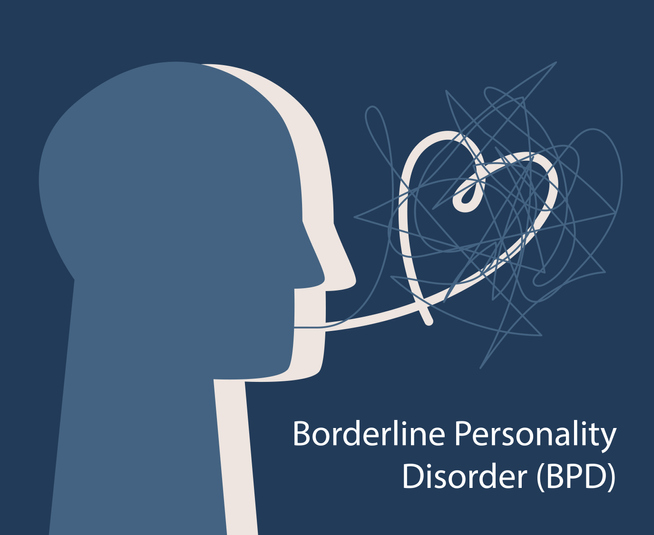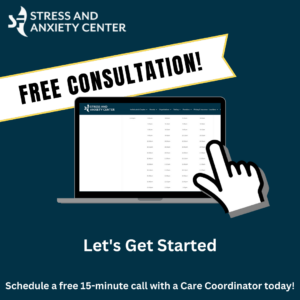Borderline personality disorder (BPD) is a serious mental health disorder that affects how a person sees themselves and others. Their unstable sense of self, intense fear of abandonment, erratic mood swings, impulsive behaviors, and unpredictable, intense emotional reactions can make it difficult for them to maintain healthy relationships, even (or maybe especially) with the people that matter most to them. People with BPD suffer from emotional dysregulation that makes it difficult for them to manage their own extreme emotional responses, and they may turn to unhealthy behaviors like violence, self-harm, or substance abuse to attempt to cope with emotional pain.
In the context of family relationships, the struggles of somebody with BPD have a negative impact on everybody in the family. Often family members describe their experience with a child or parent with BPD as feeling like they’re walking on eggshells, unsure of when they will unwittingly provoke an outburst, or a rollercoaster, in which moments of happiness and hope for improvement are rapidly replaced with anxiety and fear as their loved one lapses into destructive behavior again.
Borderline Personality Family Dynamics
When one family member has BPD, the overall experience is one of instability. One moment they may be loving, the next, lashing out. A child may be skipping school, or their self-destructive behavior may escalate to a suicide attempt. A parent with BPD may be overly attached and controlling or demonstrate affection inconsistently. Ongoing unpredictability skews how the family interacts with one another.
Stress and worry are constant, as family members fear for their loved one’s well-being. Guilt is another common feeling—parents may feel responsible for their child’s mental health and behavior, or children may feel that they somehow caused a parent’s mental illness. They may also feel exhausted or helpless when previous attempts to set healthy boundaries or provide support haven’t worked.
To complicate the issue, a family history of BPD or early disruption of family life are both risk factors for developing BPD. If you have BPD, you may not be the only one in your family struggling with their mental health, and parents may have unconsciously passed on patterns of toxic family relations. Improving family relationships often requires getting help for everyone, not just the family member with borderline personality disorder.
Starting with Self-Care
Therapy is the main form of treatment for BPD, helping you understand the disorder, improve your response to someone with BPD, learn to manage uncomfortable emotions and your response to their impulsiveness, as well as, improve your relationships. Dialectical behavior therapy (DBT), a form of treatment developed by clinical psychologist Marsha Linehan, is considered one of the most effective types of therapy for BPD and those who are in the circle of someone with BPD.
DBT focuses on improving life skills through:
- Distress tolerance: Learning how to tolerate negative emotions so that you don’t react impulsively or self-destructively.
- Emotional regulation: Learning to recognize and handle emotions to improve control over thoughts, behaviors, and feelings.
- Mindfulness: Learning to be focused on the present as well as nonjudgmental of yourself and others.
- Interpersonal effectiveness: Learning skills to better handle relationships, such as how to communicate more effectively, how to advocate for yourself and set healthy boundaries, how to build relationships, and how to end relationships that aren’t healthy.
By cultivating acceptance and balance, patients are able to validate the emotions they’re experiencing while addressing and changing problematic behaviors.
Therapy can help you understand your triggers and put effective coping mechanisms in place before you need them. This might mean things as simple as stopping to use a breathing exercise or listen to music to ground yourself before negative emotions spiral out of control. It may mean knowing when to step away from a situation and giving yourself time to collect your thoughts and calm down. With these kinds of tools, you’ll be better equipped to work on your relationships with your family in a healthy, productive way.
Developing Better Relationships
When a family has been coping with borderline personality disorder, it’s likely that the person with BPD isn’t the only one who will need to learn healthier ways to interact. Family therapy can be extremely helpful in preventing parents and kids from slipping back into patterns that may be unintentionally triggering or enabling negative behaviors. The guidance of a mental health professional can also help a family learn how to better support your recovery, enabling them to replace feelings of helplessness and frustration with the rewarding sense of being able to help you make progress toward your goals. Families may also want to join a support group to connect with others who share their experience.
Finding Help
If BPD has upended your family, positive change is possible. Therapy can be instrumental in helping give you and your loved ones the tools to build the healthy relationships you want. To get connected with a therapist who can help with either online or in-person sessions, contact the SF Stress & Anxiety Center here. We’ll schedule a free initial phone consultation with one of our compassionate Care Coordinators to match you with the right therapist for your needs.




